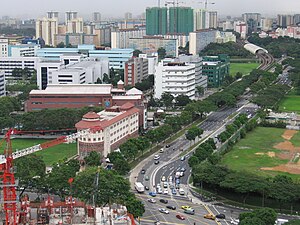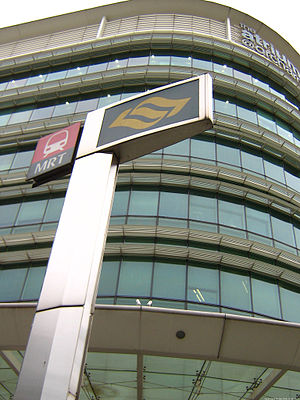Since 1 January 2009, all duty-paid cigarettes sold in Singapore are legally required to be marked with the letters “SDPC”.
All cigarettes will be sold in packets bearing the graphic health warning labels as stipulated by the Health Sciences Authority (HSA).
The SDPC will be marked on every individual stick of cigarettes.
How Does a SDPC-marked Cigarette Look Like?

What Does the Regulation Mean?
All cigarettes without the SDPC-marking in Singapore will be deemed illegal. Therefore, anyone caught selling, buying, or having in possession cigarettes without the SDPC marking will be committing an offence under the Customs and GST Acts.
Why is there a Need for this Regulation?
The new marking regulation seeks to achieve the following objectives:
- To reinforce Singapore Customs’ intensified operations to keep contraband cigarettes off the streets,
- As a measure to visibly differentiate duty-paid cigarettes from contraband cigarettes to enhance detection by our enforcement officers, and
- As deterrence to curb the peddling and buying of contraband cigarettes in Singapore
What are the Penalties?
Anyone caught selling, buying, or having in possession of duty unpaid cigarettes without the SDPC marking will be committing an offence under the Customs and GST Acts. For every packet of duty-unpaid cigarettes, buyers will be fined $500. Illegal peddlers will be arrested and charged in Court.Offenders will be fined or sent to jail or both.
Frequently-asked Questions
- What about smokers returning to Singapore from overseas? How will their packet of cigarettes be treated at the checkpoint?
There are no duty-free concessions or GST relief for cigarettes and other tobacco products in Singapore since 1991. Persons arriving in Singapore who bring in cigarettes or tobacco products, including SDPC-marked cigarettes and tobacco products, are required to declare them at the Red Channel for payment of duty and GST.
Arriving travellers and returning Singaporeans who have brought in cigarettes from overseas for their own consumption and have paid duty are advised to reproduce their receipts issued by Singapore Customs as proof of payment of duty and GST when checked by Customs officers - What are the penalties?
All duty-paid cigarettes sold in Singapore without the SDPC marking will be deemed as duty-unpaid. Anyone caught selling, buying, or having in possession of duty unpaid cigarettes without the SDPC marking will be committing an offence under the Customs and GST Acts. Illegal peddlers will be arrested and charged in court. For every packet of duty-unpaid cigarettes, buyers will be fined $500. - Will there be counterfeit cigarettes with the SDPC markings?
We assessed that this is unlikely. Nevertheless, we will be monitoring the situation closely and will review our tactics accordingly should the situation change. - Why is there a need for the SDPC marking regulation?
The SPDC marking on every stick of duty-paid cigarettes sold in Singapore is a measure to visibly differentiate duty-paid cigarettes from contraband cigarettes. This will enhance detection by our enforcement officers, and act as deterrence to curb the peddling and buying of contraband cigarettes in Singapore. The new requirement will reinforce Singapore Customs’ intensified operations to keep contraband cigarettes off the streets. - When will the regulation on “SPDC” markings take effect?
All individual sticks of cigarettes that are meant for sale or consumption in Singapore will have to bear the SDPC marking.
 I am in the Gan Eng Seng Primary School in a middle-class neighborhood of Singapore, and the principal, A. W. Ai Ling, has me visiting a fifth-grade science class. All the 11-year-old boys and girls are wearing junior white lab coats with their names on them. Outside in the hall, yellow police tape has blocked off a “crime scene” and lying on a floor, bloodied, is a fake body that has been murdered. The class is learning about DNA through the use of fingerprints, and their science teacher has turned the students into little C.S.I. detectives. They have to collect fingerprints from the scene and then break them down.
I am in the Gan Eng Seng Primary School in a middle-class neighborhood of Singapore, and the principal, A. W. Ai Ling, has me visiting a fifth-grade science class. All the 11-year-old boys and girls are wearing junior white lab coats with their names on them. Outside in the hall, yellow police tape has blocked off a “crime scene” and lying on a floor, bloodied, is a fake body that has been murdered. The class is learning about DNA through the use of fingerprints, and their science teacher has turned the students into little C.S.I. detectives. They have to collect fingerprints from the scene and then break them down. 


















